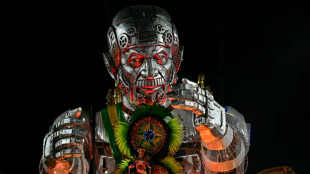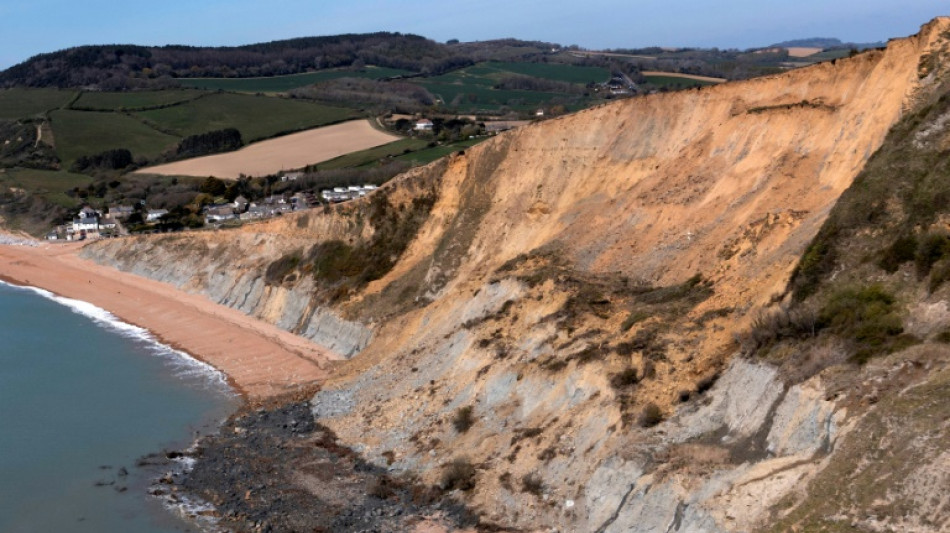
-
 USA thrash Sweden to reach Olympic women's ice hockey final
USA thrash Sweden to reach Olympic women's ice hockey final
-
Russian poisonings aim to kill -- and send a message

-
 France's Macron eyes fighter jet deal in India
France's Macron eyes fighter jet deal in India
-
Arsenal to face third-tier Mansfield, Newcastle host Man City in FA Cup

-
 Robert Duvall: understated actor's actor, dead at 95
Robert Duvall: understated actor's actor, dead at 95
-
'How long?': Day Three of hunger strike for Venezuelan political prisoners' release
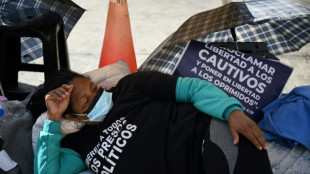
-
 Berlinale: Film director Mundruczo left Hungary due to lack of funding
Berlinale: Film director Mundruczo left Hungary due to lack of funding
-
Malinin talks of 'fighting invisible battles' after Olympic failure

-
 'Godfather' and 'Apocalypse Now' actor Robert Duvall dead at 95
'Godfather' and 'Apocalypse Now' actor Robert Duvall dead at 95
-
Sinner serves up impressive Doha win on his return

-
 Luis Enrique dismisses 'noise' around PSG before Monaco Champions League clash
Luis Enrique dismisses 'noise' around PSG before Monaco Champions League clash
-
Grief-stricken McGrath left in shock at Olympic slalom failure

-
 Brignone leads charge of veteran women as Italy celebrates record Olympic haul
Brignone leads charge of veteran women as Italy celebrates record Olympic haul
-
Sri Lanka's Nissanka leaves Australia on brink of T20 World Cup exit

-
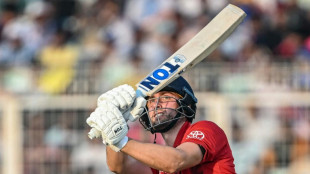 England match-winner Jacks proud, confident heading into Super Eights
England match-winner Jacks proud, confident heading into Super Eights
-
St Peter's Basilica gets terrace cafe, translated mass for 400th birthday

-
 Meillard hails Swiss 'golden era' after slalom win caps Olympic domination
Meillard hails Swiss 'golden era' after slalom win caps Olympic domination
-
Sri Lanka fight back after strong start by Australia's Marsh, Head

-
 Kovac calls on Dortmund to carry domestic 'momentum' into Champions League
Kovac calls on Dortmund to carry domestic 'momentum' into Champions League
-
Dutch inventor of hit game 'Kapla' dead at 80: family
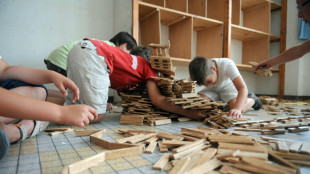
-
 Benfica's Mourinho plays down Real Madrid return rumour before rematch
Benfica's Mourinho plays down Real Madrid return rumour before rematch
-
St Peter's Basilica gets terrace cafe for 400th anniversary

-
 Meillard extends Swiss Olympic strangehold while Gu aims for gold
Meillard extends Swiss Olympic strangehold while Gu aims for gold
-
Meillard crowns Swiss men's Olympic domination with slalom gold
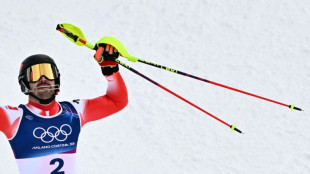
-
 German carnival revellers take swipes at Putin, Trump, Epstein
German carnival revellers take swipes at Putin, Trump, Epstein
-
England survive Italy scare to reach T20 World Cup Super Eights

-
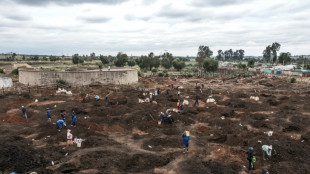 Gold rush grips South African township
Gold rush grips South African township
-
'Tehran' TV series producer Dana Eden found dead in Athens

-
 Iran FM in Geneva for US talks, as Guards begin drills in Hormuz Strait
Iran FM in Geneva for US talks, as Guards begin drills in Hormuz Strait
-
AI chatbots to face UK safety rules after outcry over Grok
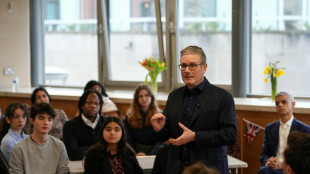
-
 Sakamoto fights fatigue, Japanese rivals and US skaters for Olympic women's gold
Sakamoto fights fatigue, Japanese rivals and US skaters for Olympic women's gold
-
'Your success is our success,' Rubio tells Orban ahead of Hungary polls

-
 Spain unveils public investment fund to tackle housing crisis
Spain unveils public investment fund to tackle housing crisis
-
African diaspora's plural identities on screen in Berlin
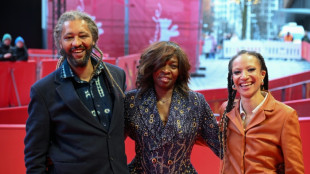
-
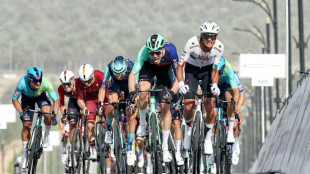 Del Toro wins shortened UAE Tour first stage
Del Toro wins shortened UAE Tour first stage
-
German carnival revellers take sidesweep at Putin, Trump, Epstein

-
 Killing of far-right activist stokes tensions in France
Killing of far-right activist stokes tensions in France
-
Record Jacks fifty carries England to 202-7 in must-win Italy match

-
 European stocks, dollar up in subdued start to week
European stocks, dollar up in subdued start to week
-
African players in Europe: Salah hailed after Liverpool FA Cup win

-
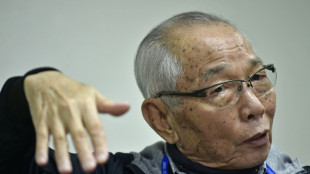 Taiwan's cycling 'missionary', Giant founder King Liu, dies at 91
Taiwan's cycling 'missionary', Giant founder King Liu, dies at 91
-
Kyrgyzstan president fires ministers, consolidates power ahead of election
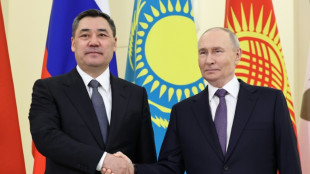
-
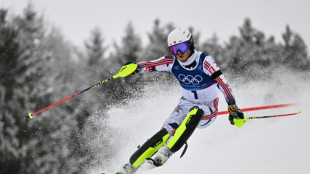 McGrath tops Olympic slalom times but Braathen out
McGrath tops Olympic slalom times but Braathen out
-
Greenland's west coast posts warmest January on record
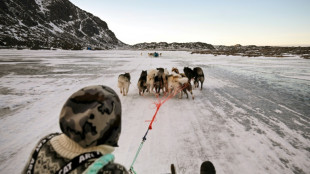
-
 South Africa into Super Eights without playing as Afghanistan beat UAE
South Africa into Super Eights without playing as Afghanistan beat UAE
-
Madagascar cyclone death toll rises to 59
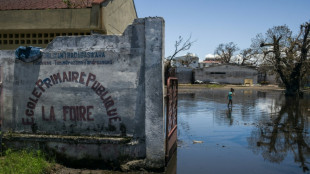
-
 ByteDance vows to boost safeguards after AI model infringement claims
ByteDance vows to boost safeguards after AI model infringement claims
-
Smith added to Australia T20 squad, in line for Sri Lanka crunch

-
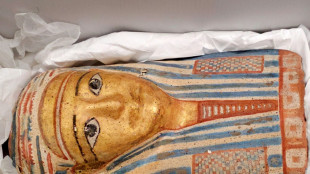 Australian museum recovers Egyptian artefacts after break-in
Australian museum recovers Egyptian artefacts after break-in
-
India forced to defend US trade deal as doubts mount


Society centred around women in UK during Iron Age: scientists
Scientists analysing 2,000-year-old DNA have revealed that a Celtic society in the southern UK during the Iron Age was centred around women, backing up accounts from Roman historians, a study said Wednesday.
When historians such as Tacitus and Cassius wrote about Rome conquering Britain from around AD 44 to 84, they described women holding positions of power.
These include the famous warrior queen Boudica, who started an uprising against Roman occupation, sacking and burning several cities including Londinium -- which would one day become London. There was also Cartimandua, the 1st-century queen of the Brigantes people in northern England.
Julius Caesar, in his account of the Gallic Wars written more than more than century earlier, also described Celtic women participating in public affairs, exercising political influence -- and having more than one husband.
"When the Romans arrived, they were astonished to find women occupying positions of power," said Miles Russell, an archaeologist at Bournemouth University and co-author of the new study in Nature.
Some had doubted these accounts, suggesting "that the Romans exaggerated the liberties of British women to paint a picture of an untamed society," he told AFP.
"But archaeology, and now genetics, implies women were influential in many spheres of Iron Age life," he said.
"Indeed, it is possible that maternal ancestry was the primary shaper of group identities."
- Men moved on, women stayed put -
For the study, the team of researchers analysed more than 50 genomes extracted from burial sites in the village of Winterborne Kingston in southern England's Dorset county, which was populated before and after the Roman conquest.
Iron Age cemeteries with well-preserved burial sites are rare in Britain, perhaps because the dead were often cremated, stripped of their flesh and organs, or simply "deposited in wetlands", the researchers wrote.
However the Durotriges tribe, which occupied the southern central coastal region of England between 100 BC and AD 100 -- and gave their name to Dorset -- were an exception, burying their dead in cemeteries.
Excavations carried out at these sites since 2009 had already yielded some clues about the high social status women held in the tribe.
The "well-appointed graves across the Dorset Iron Age" containing drinking vessels, mirrors, beads and other goods were all female -- except for one that included a sword, said Russell, who led the excavations.
The DNA analysis showed that most of the people buried at the site were related through their maternal line, going "back to a single woman, who would have lived centuries before", said lead study author Lara Cassidy of Trinity College Dublin.
However there were almost no connections down the paternal line.
"This tells us that husbands moved to join their wives' communities upon marriage, with land potentially passed down through the female line," Cassidy said in a statement.
Societies centred around women -- which ethnographers call a "matrilocality" -- are rare throughout this period of history.
Yet the researchers trawled through previous research and "found signatures of matrilocality in a number of cemeteries across Britain dating to the Middle and Late Iron Age," from around 400 BC onwards, Cassidy said.
"However, it is quite possible this system was also common in the early Iron Age or perhaps even earlier."
P.Silva--AMWN
